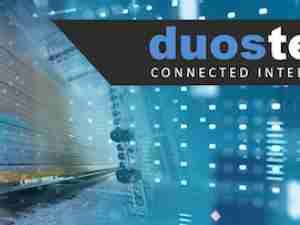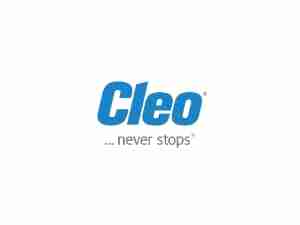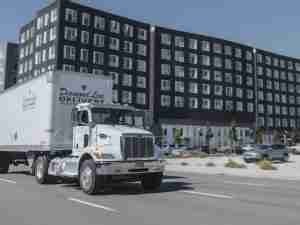Developed by the Digital LTL Council, the eBOL Standard is already making a difference
Alexandria, Virginia, June 23, 2023 – The Digital LTL Council, a division of the National Motor Freight Traffic Association (NMFTA), issued a call to the industry in 2022 to embrace a new common standard for electronic bill of lading (eBOL) application programming interface (API). This standard will help the industry become more efficient and produce a more fluid supply chain through digitization.
As the initial implementation date of July 20 approaches, the industry is seeing real progress and enjoying rewards from the effort.
The process started in 2019 when the Council was first working on standards for eBOLs. After three years of bringing together key stakeholders to refine the standard, the Digital LTL Council asked carriers and 3PLs in 2022 to sign pledges that they would adopt the standard by July 20, 2023. Across the industry, pledges came pouring in, proving widespread recognition that the eBOL standard is needed.
With the initial implementation target date one month away, the industry is seeing real progress. It also urges those in the industry who still need to do so to prioritize implementation.
“The companies who have led the way on this are already seeing a return on the investment,” said the Digital LTL Council’s Executive Director Paul Dugent. “This confirms what we have understood all along – that the eBOL standard is essential for the LTL industry in terms of efficiency, accuracy, and overall operational excellence. That’s why we’re ready to do whatever it takes to help the rest of the industry get there by July.”
By standardizing the eBOL process, the industry is eliminating inefficiencies and confusion with respect to matters such as:
- Obtaining PRO numbers
- Identification and communication of what is being shipped
- Details such as how many pallets are involved, and which articles are on the pallets
- Packaging type
- Ensuring the appropriate equipment is being used to pick up the shipment
Carriers already implementing the eBOL standard include Old Dominion Freight Line, Dayton Freight Lines, Estes Express Lines, Southeastern Freight Lines, R+L Carriers, Roadrunner Transportation, and PITT OHIO. Averitt Express, Peninsula Truck Lines, and Dependable Supply Chain Services are closing in on full implementation. These carriers alone account for 15 percent of carrier revenue in LTL.
In the 3PL category, no early adopter is further along than C.H. Robinson, which has the eBOL standard in operation with most of the carriers it works with.
“Because of our scale and our relationships with nearly every LTL carrier in the industry, for us to work on initiatives to reduce costs, phone calls, and administration is extremely impactful,” said C.H. Robinson’s Vice President of LTL Greg West. “We prioritized this because we saw the opportunity to eliminate unnecessary work and achieve real performance gains. This is an important enhancement in our digital connectivity with LTL carriers.”
Before implementing the eBOL standard, West said, most 3PLs spent considerable time chasing down information like PRO numbers in order to provide real-time visibility for LTL shippers.
According to West, C.H. Robinson recognized that the standard established by the Digital LTL Council could serve as the benchmark for the entire LTL industry, and it made sense to embrace it quickly.
“It was so well thought out by a broad base of industry professionals,” West said. “By having the right people at the table to consider all the needs of the marketplace, it met most everything we knew we needed to fit into.”
Leading technology organizations that connect shippers and carriers have also fully implemented the standard, including project44 and SMC3. As a result, shippers and carriers working with these companies are also in compliance.
For project44 clients, the impact has been quick and multifaceted.
"By implementing the new eBOL standard, shippers are already seeing efficiency benefits in daily use cases,” said project44’s Senior Manager of Carrier Engagement Brad Berlin. “The eBOL standard ensures shippers do not have to wait for the freight bill to be manually entered,
which typically takes place at the end of business each day, minimizes keying errors, and results in an earlier confirmation of an actual pickup. By implementing these standards, shippers can expect to see improved on-time performance, and fewer carrier misroutes and can foster better collaboration between teams and partners."
Brian Thompson, chief commercial officer at LTL-focused solutions provider and association SMC3, called the eBOL standard a foundational piece for digitalizing LTL shipment lifecycles.
“From my vantage point, it all starts with the eBOL,” Thompson said. “That’s the first step to really transmitting that information digitally. It’s a step toward much less reliance on paper bills of lading.”
Thompson said 3PLs and shippers are telling SMC3 that, since implementing the new standard, they see considerable impact on the process.
“Since we’ve standardized the connection, it’s elevated the speed and lowered the cost of maintaining those integrations for carriers who have adopted the standard,” Thompson said. “It’s because they’re all following the same formula. When you standardize the attributes, the iterations, and the business rules, it really does facilitate a seamless communication that’s less likely to be misinterpreted.”
West expressed confidence that the industry will quickly benefit, just as C.H. Robinson has.
“The greater our digital connectivity, the fewer our manual touches with LTL carriers,” West said. “That includes the tender to the carrier, the pickup, the tracking of the information around that, as well as the invoicing. The LTL industry 15 years ago was mainly business-to-business. Now it’s business-to-consumer, and the customers want to see the driver and when he’s going to arrive. This is helping to facilitate that.”
Estes Express Lines is one of C.H. Robinson’s contract LTL carriers that has implemented the eBOL standard. According to Estes's Director of Customer Success Sam Ralat, adopting the standard has improved performance on thousands of shipments per day. One example is a simpler process for getting PRO numbers – the critical numbers used to track a shipment throughout its journey.
“This has reduced the amount of manual work that has to be done to get that number,” Ralat said. “It sounds trivial, but getting the PRO number can be very difficult in the LTL industry. But with the new standard, they’re having to call us less looking for PRO numbers.”
Ralat understands the standard well. In 2019, he was one of the founders of the Digital LTL Council, with a high-priority focus on digitizing elements of the LTL shipping process, such as bills of lading.
“Earlier in my career, I talked to every LTL carrier – certainly the top 20 – and I realized they all had the exact same issues,” Ralat said. “I sat them around the room and said, ‘Every one of you has this exact same issue and you’re all trying to solve it in your own unique way. Let’s actually work on this issue together.’”
Carriers and 3PLs still working toward implementation are encouraged to continue prioritizing it and to contact NMFTA if they need help.
Up next, the Digital LTL Council is creating a roadmap that will define all the APIs necessary to digitize LTL shipment data from creation to cash. One API will involve pickup visibility, which is currently in the study phase.
“The benefits for the industry as a whole are already showing themselves in the early adopters,” said NMFTA’s Executive Director Debbie Ruane Sparks. “We want the whole industry enjoying these benefits of efficiency, accuracy, and operational excellence. That’s why we established the eBOL standard in the first place. The deadline is looming, but we are confident the industry will rise to meet it.”






